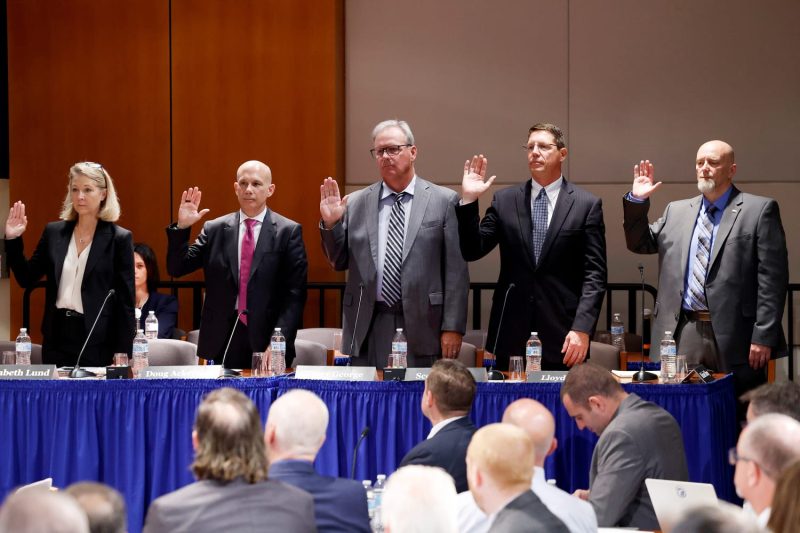The National Transportation Safety Board (NTSB) Grilled Boeing Execs: An In-Depth Look
The recent hearings conducted by the National Transportation Safety Board (NTSB) with Boeing executives have shed light on crucial aspects of safety culture and allegations of retaliation within the aviation giant’s organization. The NTSB’s role in ensuring aviation safety and investigating accidents is pivotal, making these hearings a significant event in the realm of aviation safety.
The hearings delved into the safety culture at Boeing and the measures the company has implemented to address safety concerns following the two fatal crashes of its 737 Max aircraft. The crashes, which occurred in 2018 and 2019, resulted in the grounding of the 737 Max fleet and raised serious questions about Boeing’s safety protocols and decision-making processes.
During the hearings, NTSB officials questioned Boeing executives about the company’s safety practices, including how safety-related concerns are reported, investigated, and addressed. The executives were pressed on issues such as the transparency of safety reporting mechanisms, the effectiveness of safety training programs, and the company’s response to safety incidents and near-misses.
One key focus of the hearings was the alleged culture of retaliation at Boeing, where employees raising safety concerns were reportedly subjected to intimidation or reprisals. The NTSB sought to understand how Boeing deals with employees who report safety issues and whether there are adequate protections in place to prevent retaliation against whistleblowers.
The executives faced tough questioning from NTSB officials regarding the company’s efforts to foster a culture of safety and accountability within its ranks. They were also pressed on how Boeing plans to rebuild trust with regulators, customers, and the public in the wake of the 737 Max crisis.
The hearings underscored the importance of a strong safety culture in the aviation industry and the need for companies like Boeing to prioritize safety above all else. The NTSB’s scrutiny of Boeing’s safety practices serves as a reminder that compliance with safety regulations is non-negotiable and that transparency and accountability are essential for maintaining public trust in the aviation sector.
Moving forward, Boeing will need to demonstrate a genuine commitment to addressing the issues raised during the hearings and implementing robust safety measures to prevent future accidents. The company’s reputation and credibility are on the line, and its response to the NTSB’s inquiries will be closely monitored by industry stakeholders and the public alike.
In conclusion, the hearings conducted by the NTSB with Boeing executives have shed light on critical safety and cultural issues within the company. By holding Boeing accountable for its safety practices and decision-making processes, the NTSB is playing a crucial role in ensuring the safety and integrity of the aviation industry. It is now up to Boeing to heed the NTSB’s recommendations and take decisive action to enhance its safety culture and rebuild public trust.
